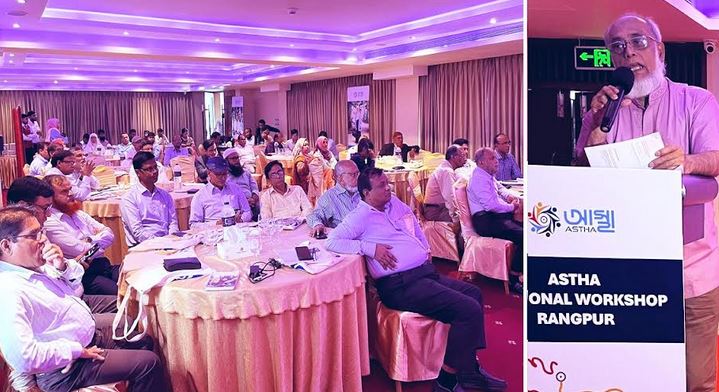News Flash
News Flash

RANGPUR, Sept 18, 2025 (BSS) - Chairperson of the Community Clinic Health Support Trust (CCHST) Dr Abu Muhammad Zakir Hussain has underscored the importance of integrating Community Paramedics into the national healthcare framework.
"Community Paramedics are a vital bridge between rural households and the healthcare system. Strengthening their role will reduce the pressure on public facilities while ensuring equitable and quality healthcare for underserved populations," he said.
He said this today while addressing a divisional workshop titled 'Opportunities and challenges of Community Paramedic service in the primary health care system' held at the Grand Palace Hotel and Resort conference room in the city as the chief guest.
Swisscontact's Achieving Sustainability towards Healthcare Access (ASTHA) project organised the workshop focusing on the opportunities and challenges of Community Paramedic services in Bangladesh's primary healthcare system.
Divisional Director (Health) of the Directorate General of Health Services (DGHS) Dr Md Gausul Azim Chowdhury and Divisional Director of the Directorate General of Family Planning (DGFP) Dewan Morshed Kamal spoke as special guests.
Senior government officials, including representatives from the DGHS, DGFP and Community Paramedic Training Institutes, healthcare experts, development organisations from allover Rangpur division and journalists participated in the event.
Senior Manager-Intervention and Portfolio of ASTHA of Swisscontact Bangladesh Md Rezaul Karim delivered presentations on 'Overview of SASTHA' and 'Opportunities and Challenges of the Community Paramedic Programme.
He highlighted ASTHA's contributions since 2011 in training Community Paramedics, enhancing their service capacity and advocating for systemic reforms, including national health policy.
Certified by the Bangladesh Nursing and Midwifery Council (BNMC), Community Paramedics complete a two-year full-time course and provide maternal and child health, family planning, adolescent healthcare, nutrition, and referral services.
In remote areas where physicians are often absent, Community Paramedics serve as the first point of care for rural families.
"Despite this critical role, Community Paramedics face limited recognition in the public health system, weak referral pathways, and inadequate financial or career incentives," he said.
The special guest, other experts and speakers in the Rangpur workshop stressed the need for stronger coordination with local health authorities, more public-private partnerships, and integration of Community Paramedics into national health campaigns.
Outcomes will inform upcoming national workshops and contribute to Bangladesh's goal of Universal Health Coverage (UHC).
Manager-Field Operations of ASTHA Md Khairul Islam said ASTHA is a Swisscontact project in Bangladesh that trains and supports Community Paramedics to improve healthcare access in underserved rural areas, while creating dignified employment opportunities for youth.
Since 2011, ASTHA has strengthened the Community Paramedic training system, enhanced service delivery, and built recognition for the profession nationwide.
This project is financed by Novartis, the Evi Diethelm Winteler Stiftung and the Happel Foundation among other donors.